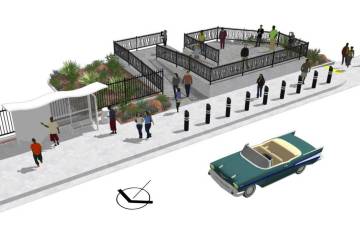Nevada lawmakers consider bill to keep kids on Medicaid
Legislators in Carson City heard an introduction on a bill Monday that would provide children covered under Medicaid with one year of uninterrupted coverage from the date of their enrollment in the case that they become ineligible — for example, through an increase in a parent’s income.
“Over the course of 12 months or a year, a lot of things can happen,” said Democratic Sen. Melanie Scheible of Las Vegas, who introduced the bill.
Senate Bill 198 would allow parents to take a higher-paying job without the concern that their child would immediately lose coverage under Medicaid, the insurance program for low-income people. That would allow parents to seek preventative and early intervention health services for their children, said Emma Rodriguez with the state’s Children’s Advocacy Alliance.
“Nevada is one of 12 states where the rate of uninsured children is significantly higher than the national average,” she said, adding that a mandate for continuous coverage could impact that rate.
The bill would not bar parents from voluntarily removing their children from the program, for example, if that parent obtains insurance through their employer, Rodriguez said.
In an earlier committee hearing, legislators considered AB 129, which would require first responders, including law enforcement and paramedics, to undergo two hours of training every two years on how to respond to people with developmental disabilities.
“It’s really important to us to have this training and to really understand maybe something that’s not an everyday occurrence for us,” said Assemblyman Mike Sprinkle, D-Sparks, who sponsored the bill and is himself a firefighter.
The bill would also require clinicians such as doctors and nurses who work in pre-hospital settings to undergo training.
Carol and Art Reitz, founders of Justin Hope Foundation, a Northern Nevada organization that advocates for those with developmental disabilities, already conduct the training for some first responders in Nevada. Their son, Justin, is autistic.
Choking up, Art Reitz described a situation in which an urgent care doctor denied Justin care, because that doctor didn’t feel comfortable giving stitches to someone with autism.
“I truly feel in this situation that there was no lack of wanting to help Justin, but just the lack of knowledge of an individual with autism,” he said.
Several people testified in support, including parents of those with disabilities and disabled individuals.
A previous version of this article incorrectly described a provision of the bill.
Contact Jessie Bekker at jbekker@reviewjournal.com or 702-380-4563. Follow @jessiebekks on Twitter.






















